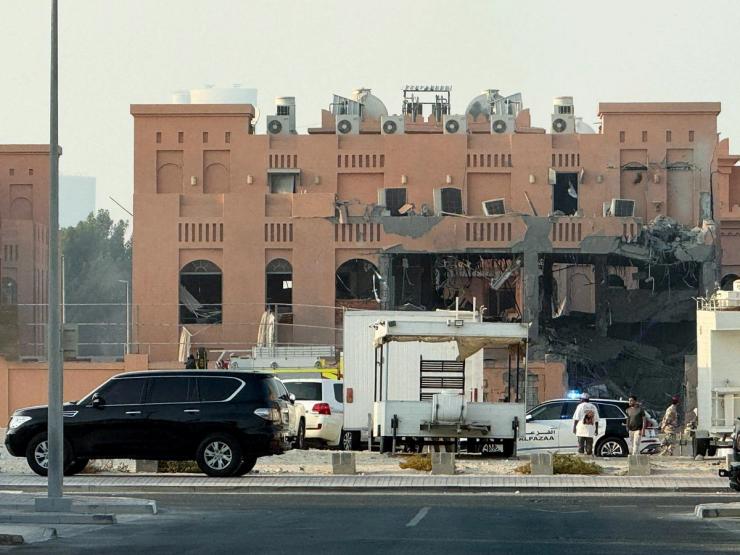Omar’s view
Over the course of the 21st century, several mutual defense pacts that looked ironclad on paper have collapsed under fire. As a result, small countries — many Arabian Gulf states among them — are being forced to reassess how to maximize the credibility of their security arrangements. There are lessons in history on how to make them stick.
Between 1815 and 1944, alliances promising mutual defense proliferated, yet wars were plentiful. France illustrates both sides of the coin: In 1914, days after Germany declared war on Russia, Paris honored the terms of its 1894 alliance with Moscow and mobilized immediately. In 1938, it infamously abandoned Czechoslovakia during the Munich Crisis, pressuring the Eastern European state to accept Adolf Hitler’s demands rather than provide it with the military aid the pact implied.
International relations scholars have mined this history, constructing the Alliance Treaty Obligations and Provisions (ATOP) database to study what makes countries fulfil their commitments — and what makes them renege. It finds that roughly three-quarters of such pacts were honored between 1815 and 1944, likely an underestimate of the true strength of alliances since aggressors tended to probe weaker-looking ones.
Three lessons stand out for today’s Gulf countries, which have several explicit, and tacit, security guarantees but face multiple threats to their sovereignty.
First, coincidence of interests. For a country offering a Gulf state a security guarantee to be credible, threats to the Gulf state’s security need to be damaging to that country’s interests. This is why, historically, defense pacts have focused on countries that are in close physical proximity, as they are more likely to face the same adversaries, and mutual assistance is logistically straightforward. NATO is perhaps the most salient manifestation of the dynamic, with the alliance spanning a large number of contiguous member states.
Second, forward commitments and sunk costs. Stationing troops in Gulf countries, embedding integrated command structures, and creating cross-dependencies make it harder to walk away. If a Gulf state’s security partner installs its military personnel in that state, then a large-scale attack on that Gulf state will almost certainly lead to significant casualties among the security partner’s ranks, inevitably dragging it into the conflict. Along these lines, American casualties during the 1950 invasion of Korea by the North made US neutrality almost impossible.
Third, clarity of obligations. Ambiguously worded pacts invite evasion. One of the reasons for France’s ability to abandon Czechoslovakia was that its obligation required the League of Nations to act first. In 1938, Paris was able to argue that the League had not moved, paving the way for the withholding of aid.
It is also important to note that modern warfare — most notably the development of drones — makes security guarantees less credible. Drones allow aggressors to target critical infrastructure that cripples a defender’s economy at low cost and with high accuracy. This significantly decreases the likelihood of collateral damage on the forces deployed by a security guarantor, allowing that partner to be a neutral and idle spectator rather than an active belligerent.
This threat is amplified by the ability to maintain high degrees of plausible deniability when using drones: Outsourcing the job to non-state actors allows aggressors to avoid activating the terms that trigger action in security alliances, making the reputational damage of inaction by the security guarantor much lower. This helps explain the rising frequency of “gray zone” attacks inside and outside the Middle East, as would-be assailants leverage cutting-edge technology to evade the obstacles posed by defense pacts.
Ultimately, the credibility of mutual defense in the Gulf will depend less on paper promises and more on whether allies can lock in coincidental interests, embed real commitments, and remove ambiguity. In an age where drones and cyber attacks blur the line between war and peace, the Gulf must approach every pact with clear eyes: Only those agreements signed today that bind partners tightly together will deter tomorrow’s aggressors.
Omar Al-Ubaydli (@omareconomics) is the Director of Research at the Bahrain Center for Strategic, International and Energy Studies (Derasat), and a contributor to Semafor.
Notable
- The “waning of US deterrence, Israel’s unrestrained military strategy, and the persistency of the Iranian menace,” are forcing Riyadh and the Gulf to seek multiple defense partners, writes Eleonora Ardemagni for the Washington-based Atlantic Council.
- The Saudi-Pakistan defense pact reflects “the changing mood in the region,” and creates ripples in Beijing, New Delhi, and Washington, Joshua T. White writes in a Brookings Institution article.


